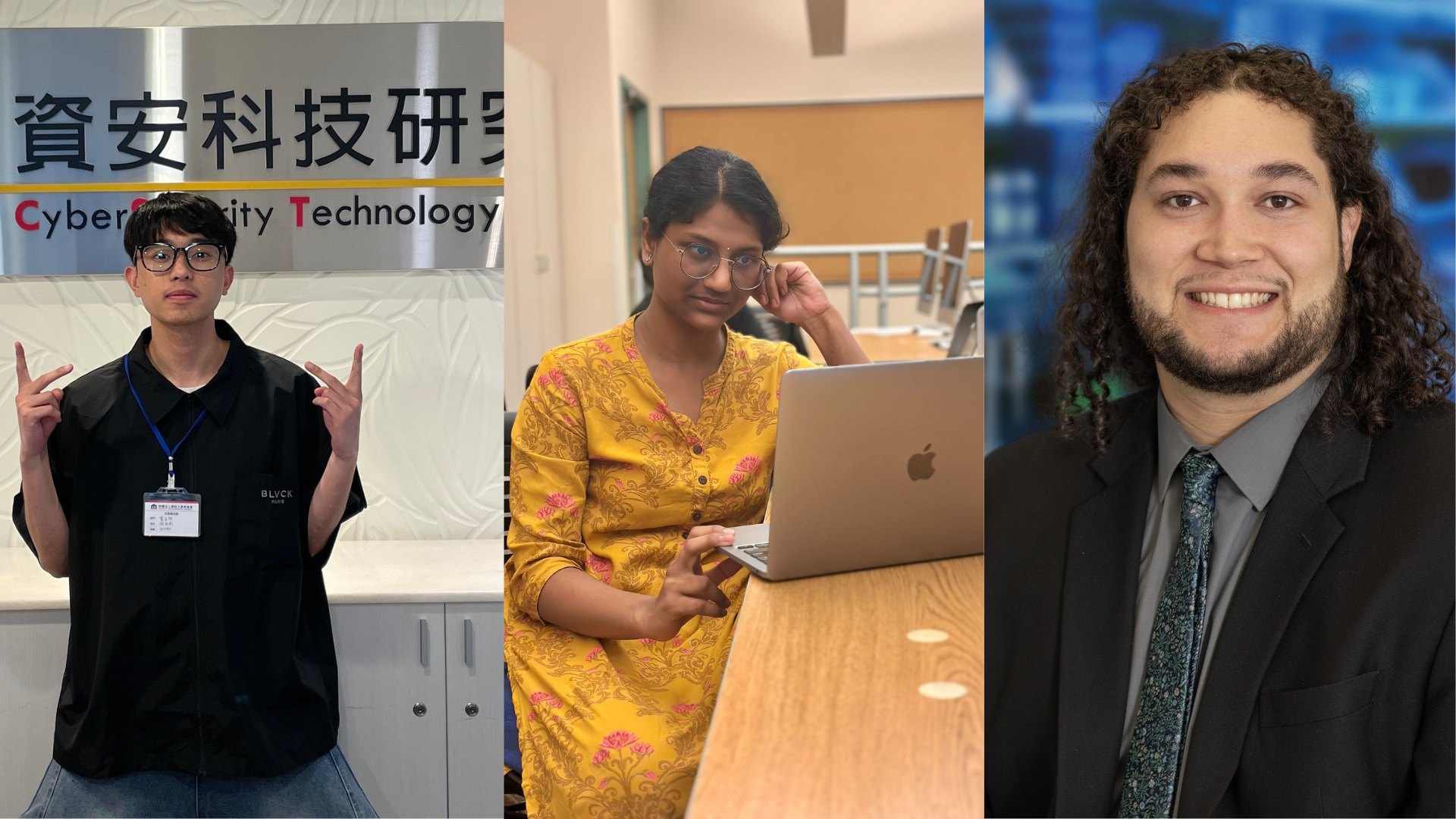

From studying cancer to tracking floods to improving cybersecurity in health care, three Arizona State University graduate students are using data science to make a difference this summer.
The students, who are in ASU’s Biological Data Science program, are putting their classroom knowledge to the test by working on these important problems in the real world.
Matthew McClure, who will graduate in spring 2026, is spending his summer at the Translational Genomics Research Institute, or TGen, in Arizona. There, he is studying small-cell lung cancer, one of the most aggressive and deadly forms of cancer. Most patients with this disease survive less than a year after diagnosis.
McClure’s project focuses on identifying biomarkers; proteins in the blood that can signal how serious the disease is. He is using bioinformatics — which combines biology, statistics and computer programming — to analyze blood samples from patients in South Korea.
By studying more than 6,800 different proteins, he hopes to discover patterns that can help doctors understand how the disease progresses and how to treat it.
“This work is personal and powerful,” McClure said. “It’s an incredible opportunity to apply bioinformatics to a disease that urgently needs breakthroughs.”
On the East Coast, Saameeriny Kalapala is working with NASA Goddard Space Flight Center in Baltimore as part of the GESTAR II Visiting Fellowship Program. She is helping to improve how scientists understand and predict flooding, a growing problem due to climate change.
Kalapala is using special satellite images to map where floods happen and how bad they are. She’s combining this satellite data with machine learning to improve predictions.
This work will help create stronger hydrology models, which show how water moves across the Earth, and are used by governments and aid organizations to warn people about floods, plan for disasters and protect communities.
“This fellowship is a perfect match for my interests in sustainability, data science and environmental systems,” Kalapala said. “I’m excited to be part of research that supports communities worldwide.”
Back in Arizona, Kevin Yu is interning with ASU’s Cyber Security Technology Institute. His focus is on making artificial intelligence safe and ethical in the world of health care.
With more hospitals using AI tools to analyze patient records or answer questions, there is growing concern about keeping sensitive data private. Yu’s work focuses on how to protect this data and prevent AI systems from making mistakes or being misused.
“AI security in health care isn’t just a technical challenge, it’s an ethical responsibility,” Yu said. “This experience has shown me how important it is to build systems that protect patients and evolve with emerging threats.”
His research shows why it’s not enough to simply build smart tools. We also have to make sure they are used in ways that are fair, safe and responsible.
ASU’s Biological Data Science program prepares students to apply computing and statistics to important problems in biology, medicine and the environment. Students in the program come from a variety of backgrounds, including biology, computer science, engineering and math.
The program’s unique approach helps students learn how to ask the right scientific questions, choose the right data and use the right tools to get meaningful answers. They are also taught how to communicate their results clearly, work with professionals across different fields and consider the ethical impact of their work.
“Saameeriny, Matthew and Kevin truly embody the core strengths of our program and are becoming leaders who not only master the science but also use data with integrity and impact,” said Nilesh Dixit, graduate program director and assistant teaching professor in the School of Mathematical and Natural Sciences. “It is incredibly rewarding to see their career growth and celebrate their achievements.”




